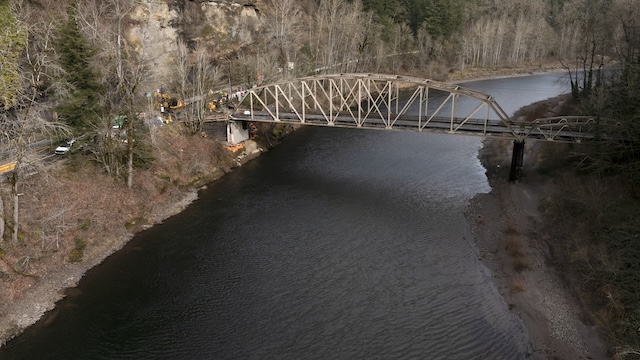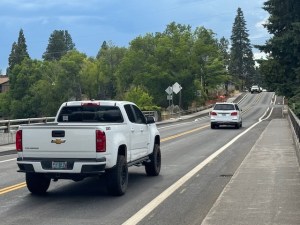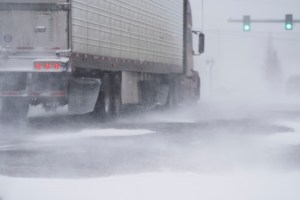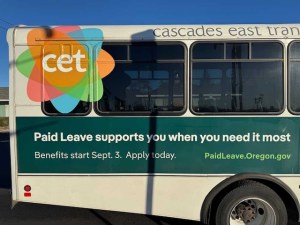Editorial: Worst-case scenarios for the August special session
Published 9:22 am Tuesday, August 5, 2025

- The Sandy River runs under the Stark Street Bridge in Troutdale as construction continues on the bridge in February. Maintaining roads and bridges gets more challenging the longer it takes to get a state transportation deal. (AP Photo/Jenny Kane)
What’s the worst thing that could happen in the August legislative special session on transportation?
Leave out natural disasters and human-caused horrors and the list can still be long.
First, let’s set the stage. Gov. Tina Kotek called legislators back for a session later this month after they failed to reach agreement during this year’s regular session on transportation funding.
Trending
We will skip the finger-pointing about whose fault that was, because that would be a long, fractious tale.
The absence of a deal means hundreds of layoffs would come at the Oregon Department of Transportation. That may hurt ODOT operations east of the Cascades worse than other parts of the state. The reason is operations and maintenance personnel make up a higher proportion of what ODOT does this side of the Cascades, as Deschutes County Commissioner and Oregon Transportation Commissioner Phil Chang pointed out on Monday.
“You want to help Eastern Oregon?” he said at Monday’s commission meeting. “We need to pass a package…..”
Don’t forget that cities and counties are also set to suffer from the absence of a transportation deal. It’s not just the state highways. “Bend receives about $10 million per year from the state fund, or about 39% of its street maintenance budget,” as Bulletin reporter Clayton Frank wrote earlier this year.
So if you are thinking about the worst things that could happen, at the top of the list is no transportation deal at the special session. The layoffs would go through. Oregonians would have fewer people to plow roads in the winter and maintain them year-round. Delayed maintenance could increase the costs of maintaining roads in the future.
If there is no deal, Kotek, could call another special session with more sweeteners added to draw in votes. But let’s get it right the first, or rather second, time.
Trending
Another worst-case scenario is that the transportation special session is so acrimonious that some legislators support a repeal of any transportation package through a ballot initiative. We think Oregonians have plenty of common sense and would support a sensible transportation package at the ballot. We are talking about worst case scenarios. Let’s assume the transportation fix goes on the ballot and voters kill the fix.
The layoffs would go through. We get to find out what that means for snow plowing and road maintenance. A partisan vote in support of a transportation fix may win the special session but be a net loser. Voter referrals of what should be routine operations of government is not a good habit. Otherwise, what are legislators there for?
Another worst-case scenario is that legislators act like the work on transportation is done after a special fix in the special session.
It won’t be.
For one, Oregon is going to need to transition away from relying on the gas tax as a source of revenue for its transportation system. It makes more sense to have some sort of road user charge where Oregonians pay by the mile. Failing to act on that issue would be like legislators lining up all the children and younger people in the state and telling them: You figure it out.
Oregon’s transportation funding has also been set up under the assumption that this is a world in which inflation does not exist. We would like to live in that place, too. But we don’t live there. Legislators should show the imagination to include in their recipe for transportation funding the idea that inflation exists and costs will continue to increase.
The best thing in favor of special session success may be all the downsides of the worst-case scenarios.








